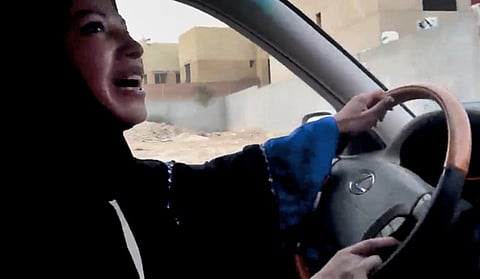Saudi prince supports women driving
Al Waleed says there will be economic, social benefits if women are allowed to drive

Manama: A tweet by Saudi billionaire Prince Al Waleed Bin Talal in favour of allowing women to drive in Saudi Arabia has sparked a heated debate on the local blogosphere.
“Deporting illegal foreign workers was the right decision and allowing women to drive will result in saving at least 500,000 jobs held by foreign drivers and subsequent economic and social benefits for the nation,” Al Waleed posted on his Twitter account where he has 315,479 followers.
Riyadh has recently launched a massive campaign to deport foreign workers who overstayed their visit visas or residence and work permits, took up jobs without going through the legal channels or entered the kingdom illegally.
The campaign has security and economic dimensions, the authorities said, stressing that unemployed Saudi nationals should be encouraged and helped to take up jobs in the country where more than eight million expatriates live.
The campaign was however suspended last week after King Abdullah Bin Abdul Aziz Al Saud called for a three-month grace period for the foreigners staying illegally in the country to legalise their status and avoid being deported.
The business tycoon who insists on the significance of reforms last week tweeted that the era of the “ostrich” was over and the era of “openness” has begun, in reference to the mythical ostriches that choose not to see problems by burying their heads in the sand when confronted with difficulties.
The debate over allowing women to drive has been heating up in Saudi Arabia and the remarks by Al Waleed have accentuated the arguments of the camp supporting the much anticipated breakthrough in the socially conservative society.
The presence of thousands of male drivers to drive mainly Saudi women and girls has been regularly used by supporters of allowing women to drive to highlight negative social and economic problems.
The arguments have also been boosted by “grave concerns” felt by several women when riding with taxi drivers.
The nomination of 30 women to the Consultative Council this year has bolstered hope that the issue of women driving will be taken up and possibly approved.
No legal text bans women from driving in Saudi Arabia and the issue is related mainly to social traditions.
The de facto ban has been at times challenged by women, but they were accused of “stirring up public opinion.”
King Abdullah, who has stressed on reforms, particularly on women’s rights, since he became ruler in August 2005, has stressed that “balanced modernisation compatible with Islamic values was a significant necessity.”
Sign up for the Daily Briefing
Get the latest news and updates straight to your inbox



